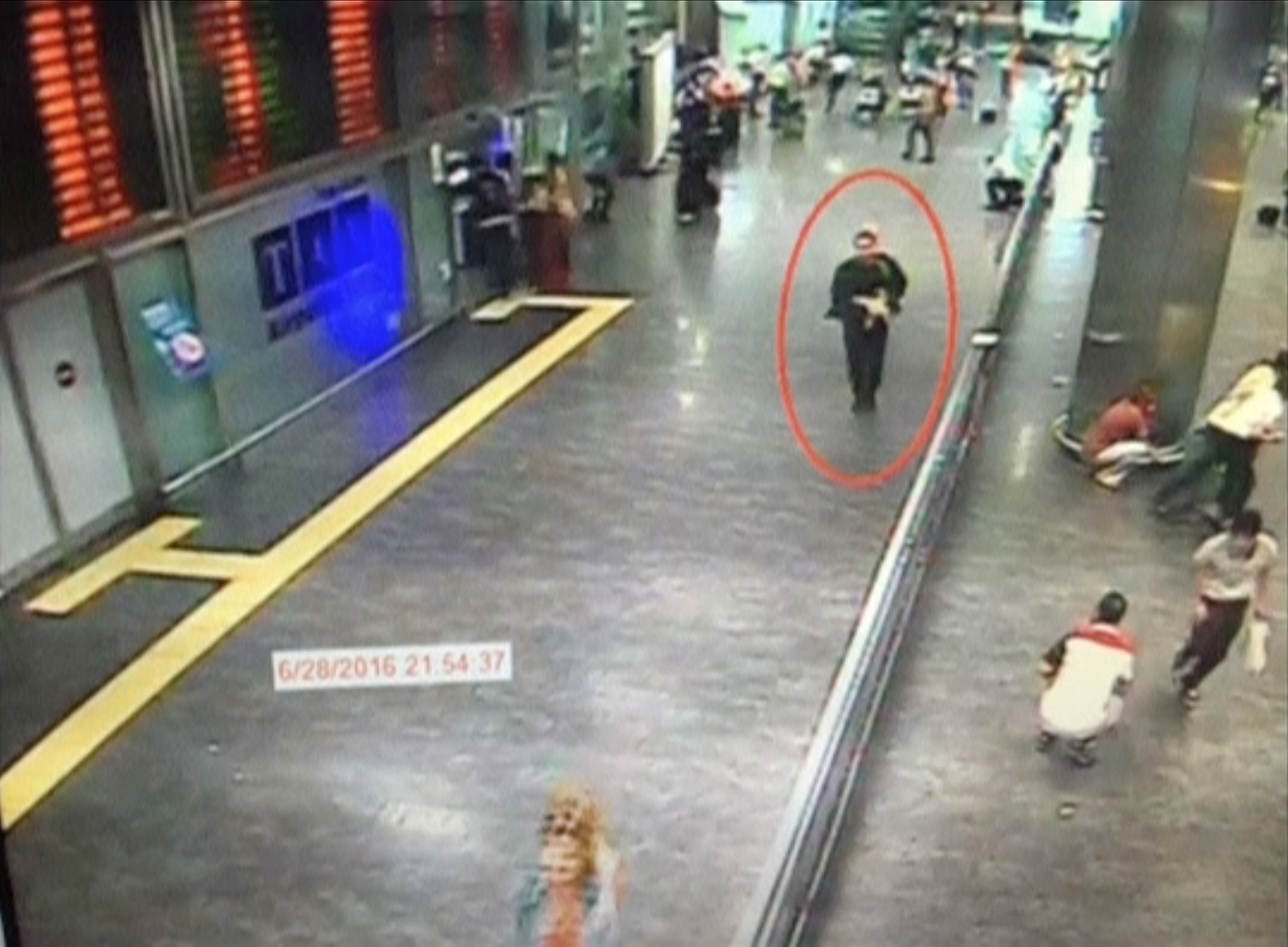Image: A still image from CCTV camera shows a man believed to be one of the attackers walking inside the terminal carrying a weapon as bystanders and travellers run for cover at Istanbul airport, Turkey June 28, 2016. Haberturk Newspaper/Handout via Reuters/Files
By Daren Butler and Yesim Dikmen
ISTANBUL (Reuters) – Seventeen suspects were due to appear in a Turkish court on Monday, state media said, in connection with last week’s suicide bombing attack on Istanbul’s main airport that killed 45 people and wounded hundreds.
The suspects, 11 of them foreigners, were expected in court after being questioned by police, state-run Anadolu Agency reported.
The court will decide whether to jail them pending trial or release them, it said.
Thirteen other suspects, three of them foreigners, were remanded by a court on Sunday pending trial. The triple suicide bombing at Istanbul Ataturk Airport on Tuesday, which officials believe to have been carried out by Islamic State, was the deadliest in a series of suicide bombings this year in Turkey.
Three bombers opened fire to create panic outside the airport before two of them got inside and blew themselves up. The third militant detonated his explosives outside at the entrance to the international arrivals terminal.
Russian nationals have been identified as two of the suspected bombers, Anadolu reported last week. Turkish officials have not commented on the report, although one official had said the attackers were Russian, Uzbek and Kyrgyz nationals.
The pro-government Yeni Safak newspaper has said the organiser of the attack was suspected to be a Chechen double-amputee called Akhmed Chatayev. He is identified on a United Nations sanctions list as a leader in Islamic State responsible for training Russian-speaking militants.
Both Turkey and Russia have said that they need to cooperate more to combat Islamic State, highlighting the threat from Russian-speaking militants.
“A renewed effort between Turkey and Russia will have the potential to contain the situation in Syria. This will also help Turkey fight more effectively against Daesh terrorism coming from the Syrian lands,” President Tayyip Erdogan’s spokesman, Ibrahim Kalin, wrote in the Daily Sabah newspaper on Saturday.
Daesh is an Arabic acronym for Islamic State.
STRIKES AGAINST ISLAMIC STATE
Turkish artillery fire and air strikes by U.S.-led coalition warplanes killed 14 Islamic State fighters in northern Syria and struck dozens of militant targets on Sunday, Anadolu reported military sources as saying.
Such military strikes have been carried out repeatedly in recent weeks. The Turkish town of Kilis, just across the border from Islamic State-controlled territory, has been hit by rockets more than 70 times this year. More than 20 people have been killed and parts of the town reduced to rubble.
Turkey also beefed up security at airports and train stations on Monday, as the suicide bombing at Istanbul’s main airport cast a shadow over the Eid al-Fitr holiday this week, which marks the end of the Muslim holy month of Ramadan.
Monday was a half day for Turkish markets and many businesses. Tuesday, Wednesday and Thursday are also national holidays, prompting many people to go away for the holidays.
“We have deployed heavily armed special forces at the airport, subway stations and Marmaray tunnel,” Prime Minister Binali Yildirim told a news conference after chairing a cabinet meeting. The Marmaray tunnel is a railway under the Bosphorus strait connecting the European and Asian sides of Istanbul.
“In case of anything unusual, they will be the first ones to retaliate. This is the precaution.”
Yildirim said the government was taking other precautions as well and was holding regular meetings on the security situation.
Turkey, which is a member of the U.S.-led coalition against Islamic State, faces a number of security threats. In addition to the spillover from the civil war in Syria it is also fighting a Kurdish insurgency in its largely Kurdish southeast.
(Writing by David Dolan; editing by Anna Willard)
Copyright 2016 Thomson Reuters. Click for Restrictions.
.


